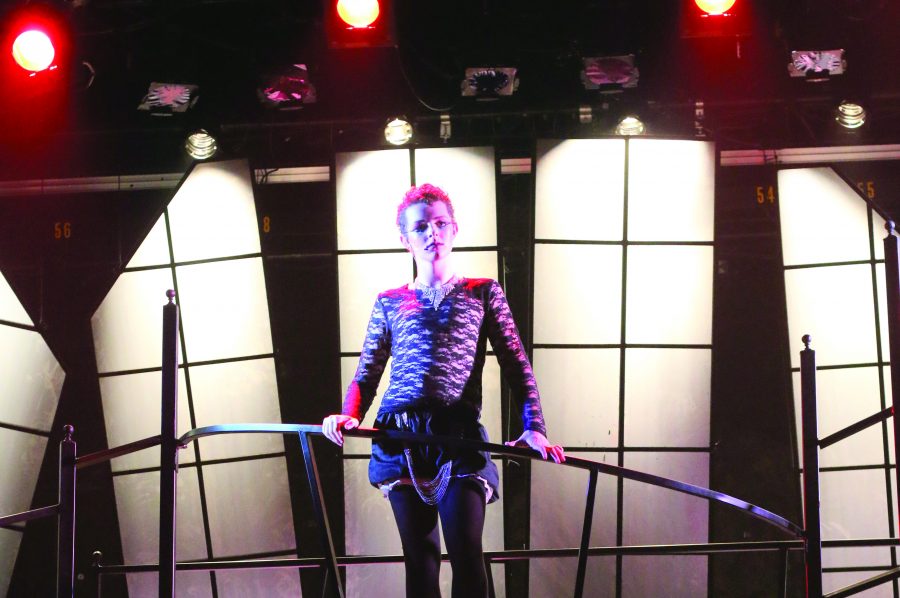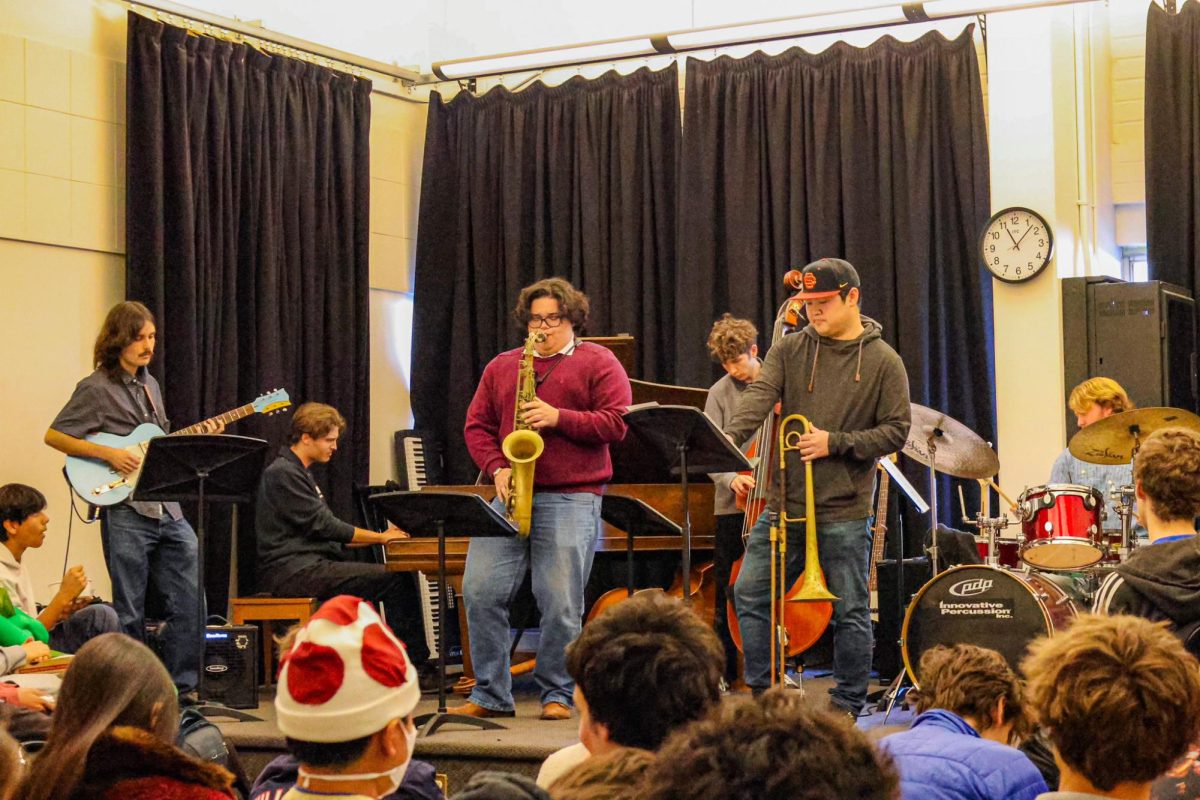The house lights came up, and Sophia Nuñez ’20 found herself in tears at the end of the Nov. 4 performance of “Cabaret.” She tried to distract herself and join in on conversations with friends, but the emotional impact of the show remained.
“Seeing how our lives aren’t forever and how we have to do something during them just really struck a chord with me,” Nuñez said. “I was inspired, not so much sad. It just made me more aware about our current times and how all of us have effects on each other. I just got extremely emotional because it’s so relevant to today to be able to make a change.”
According to Performing Arts Department Head Rees Pugh, Nuñez was not alone in her reaction to the fall production of “Cabaret.” Pugh said that in addition to the reactions he saw after the performances Nov. 2 and Nov. 4-6, he has received emails from parents and faculty members about their responses to the show.
“One parent wrote [me an email that] described almost exactly what it was I was hoping for, which was both a celebration of individual expression, as well as a stark lesson on the conditions under which hate groups flourish,” Pugh said.
Pugh said he attributes many of the reactions of the school community to the play’s ability to force the audience to choose what it will and will not support.
“[‘Cabaret’] makes you begin to examine all of your own actions,” Pugh said. “You applaud the performers, but the piece makes you so uneasy, which is really what it’s intended to do. I think that’s why it’s so effective and why we saw the reaction we did from people who didn’t know the show.”
Jaz Choi ’19, a student who watched the Nov. 6 performance, said she was most affected by the final number of the show.
“Going into ‘Cabaret,’ I didn’t know what to expect,” Choi said. “I expected it to be very happy, but by the end of the second act it was a lot more disheartening and depressing than I expected it to be. And since you know what’s going to happen, that makes it even worse because no one had a happy ending. It was a somber recognition of the message that was intended.”
Jake Schroeder ’20, who played the Emcee in the Harvard-Westlake production, said he has heard other students had reactions similar to Choi’s.
“People say that they perceived this show as a lot lighter before going into it, and then after they felt really impacted by the show,” Schroeder said. “I think that’s awesome because the purpose of the show is to show people how cruel humanity can be.”
He also said he believes the part that the ensemble plays in the musical contributed the most to its impact.
“[‘Cabaret] is such an ensemble piece.” Schroeder said. “The ensemble’s dedication and involvement gave the show so much more of a punch. People have this preconceived notion that the ensemble is just background people, but that’s so not true. It’s the unit as a whole, not just one specific part, and it’s the biggest part in the entire show.”
Shana Brindze ’19, who was in the ensemble, said she feels the ensemble’s role in “Cabaret” is to set the tone for the show.
“We sort of exist to create the world of the cabaret in which the show takes place,” Brindze said.
Brindze said the role of the ensemble was also to connect the world of the Kit Kat Kub to that of the audience and criticize patterns of apathy and complacency.
“At the end of the show, we do this thing where we look out into the audience as part of the last number,” Brindze said. ”It’s sort of calling to them to take action of their own.”
Nuñez said she has been having conversations with other students about the show since she saw it, mostly about the importance of standing up against injustice.
“We hear ridiculous things in the news, but we may not have the power to stop them, and our only option is to speak out against it,” Nuñez said. “But I feel like a lot of people at school do not want to do that, and that’s why it’s important to say that if you are not actively against something, then you are passively agreeing with it. We all need to make sure that we are supportive of people who might be different than us but who still deserve all of the same basic human rights.”





























